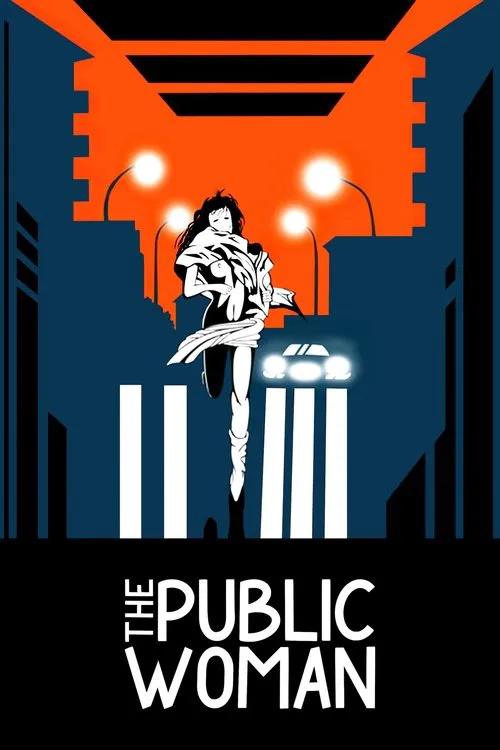The Public Woman

Plot
In 1960s Paris, a city known for its artistic and intellectual pursuits, the boundaries between reality and fiction become increasingly blurred for an unsuspecting young actress. She is a newcomer, trying to make a name for herself in the city's vibrant film scene, and is suddenly offered a role in an upcoming film adaptation of Fyodor Dostoyevsky's 'The Possessed'. The project is being spearheaded by a charismatic Czech director, whose own complex past and motivations serve as a catalyst for the chaos that unfolds. The director, whose background in Paris remains shrouded in mystery, has a clear vision for the film's narrative, and this new actress is the key to bringing it to life. He becomes increasingly obsessed with her performances, constantly pushing her to delve deeper into her characters and to explore the depths of human emotion. The actress, struggling to navigate the demands of her new role, begins to lose sight of her own identity, finding herself becoming a mere projection of the director's artistic vision. As the lines between reality and performance continue to blur, the actress is drawn into a complex web of deceit and manipulation. The director presents her with a new 'script', one in which she is cast in a real-life role - that of the deceased wife of a fellow Czech immigrant, who has recently lost his partner. This character's tragic circumstances serve as the backdrop for a dark and sinister plot, and our protagonist is instructed to pose as this woman, with the intention of winning the trust of the grieving widower. The widower, another Czech immigrant with a mysterious past, becomes the key to the director's larger scheme. Using the young actress as a proxy, the director manipulates this vulnerable individual, exploiting his grief and desperation to further his own agenda. What begins as a complex game of deception quickly escalates into a full-blown tragedy, as the director orchestrates a series of events that culminate in a shocking and devastating climax. As the actress struggles to find her footing in this treacherous world, she starts to uncover the true nature of the director's intentions, but her efforts to break free from his grasp are met with increasing resistance. Her attempts to assert her own agency and autonomy are consistently thwarted, and she is forced to confront the darker aspects of the human psyche. Throughout the film, the tension builds towards a tragic confrontation between the actress and her captor. The lines between reality and fiction become increasingly distorted, as the actor's grip on reality falters. This blurring of reality creates a sense of confusion, making it challenging to separate fact from fiction and reality from performance. This blurring of reality is a central theme in the film as it reflects the darker aspects of life, including power dynamics between filmmakers and their subjects, as well as the fragility of reality and human life. In the end, the film descends into a nightmarish conclusion, as the actress' world is turned upside down. The boundaries between reality and fiction have become irreparably shattered, and it's left to the audience to ponder the true nature of the events that have transpired. Is the film a portrayal of a dark and sinister reality, or is it just another product of the actress' fragile mind, a twisted reflection of the traumas she has experienced? The answer, much like the true meaning behind Dostoyevsky's 'The Possessed', remains open to interpretation.
Reviews
Recommendations




